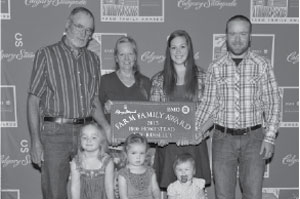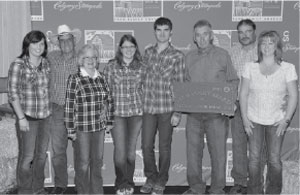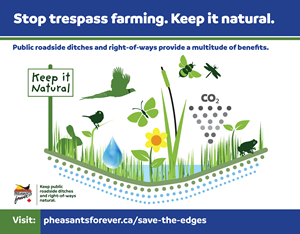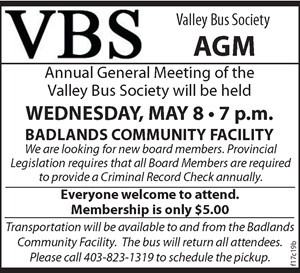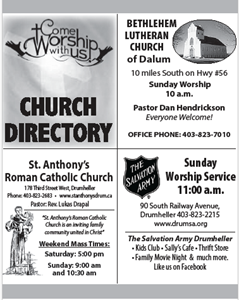Dalbey Farms, The Pallesen Family
One of the many interesting stories in the history of Western Canada is how some areas were settled by groups of pioneers connected by their background and faith.
Barry Pallesen can trace his mother Rita’s family’s presence in the area south of Drumheller to a group of Danish immigrants who came to Canada in the late 1920s. Somehow they survived the brutal conditions of the 1930s.
“My grandpa used to say after a harvest, ‘At least you got your seed back,’ “ recalls Barry.
Barry’s father, Olav, followed his dream of becoming a farmer and came out from Denmark after the Second World War to join an uncle in the area.
The Pallesen family farm’s name, Dalbey Farms, is a combination of two places names in the area – Beynon and Dalum and Dalbey farms is the 2013 BMO Farm Family of the Year for Wheatland County.
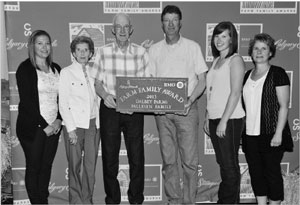
The Pallesen Family was recognized as the BMO Farm family for Wheatland County.
Olav and Rita still live on the farm and help out when needed; Olav was on the combine every day of the 2012 harvest. Barry and his wife Pauline are the farm’s main operators right now, but Barry says his daughter Kirsten, a student at Olds College, makes an increasingly large contribution.
“She hasn’t run away yet,” he quips. “It looks as if she’s going to continue with it, and that’s wonderful. When you see that your child wants to continue with things, it makes what you’re doing seem more rewarding.”
The couple’s other daughter, Jenny, is a math major at the University of Lethbridge and is always ready to help out when she is needed.
Dalbey Farms is a mixed enterprise, with a 140-pair cow-calf operation and 4,000 acres of wheat and canola. The cropland is continuously cropped and no-till. There are also about 1,500 acres, both rented and owned, that support the herd.
“I’d rather have cows than the wheat, even though there’s way more money in the grain,” Barry admits. “The cows have personality. A lump of wheat doesn’t look at you. You can’t scratch wheat under the chin. But,” he adds, “wheat does just stay there all winter without being fed, too.”
The Pallesen cattle are bred from either Black Angus or Charolais bulls.
“It’s not a purebred place,” Barry says. “They’re all red, white faced cattle.”
Knowing that what you do helps to feed the world is a pretty satisfying feeling, adds Barry.
“The challenge of raising these cattle and doing this fieldwork is absolutely huge, but, man, is it rewarding at the end of the year when it’s all come together,” he says. “There’s no better business than agriculture right now.”
Every generation of the Pallesen family has, and continues to, be active in their church and community. “Everybody does their part,” Barry says. “If you see that from a young age, then it would seem abnormal if you didn’t do it, too.”
For Barry, the success of the Pallesen family farm can’t be attributed to anyone person’s efforts.
“It’s a generational thing,” he remarks. “Just because, right now, I’m the decision maker doesn’t put me at the head of anything. It’s just my turn. The transition among all the generations has been good, and everyone gets along. We all have the same goal. It’s not about making money. It’s about doing a good job and being satisfied with what you’ve done.”

